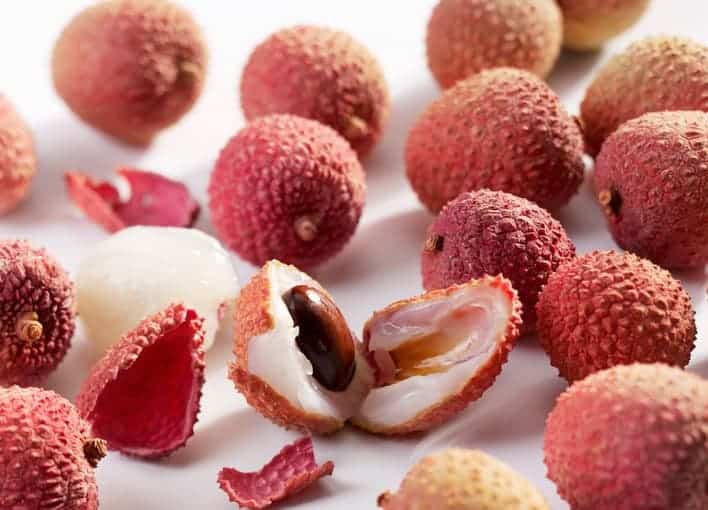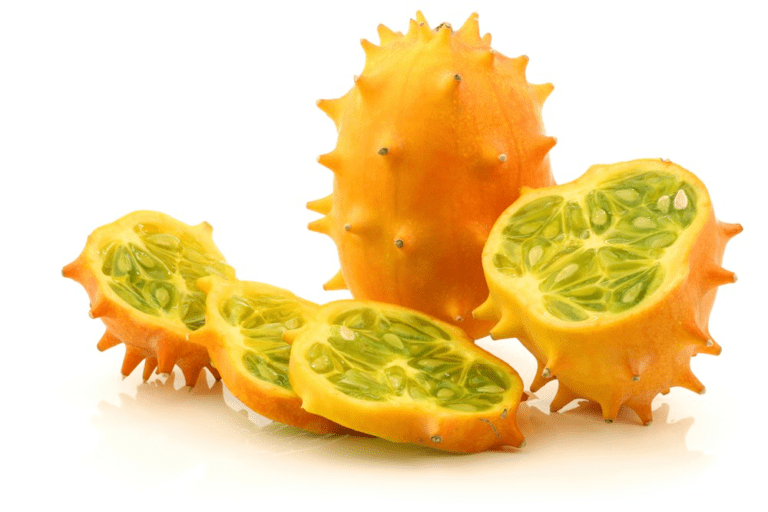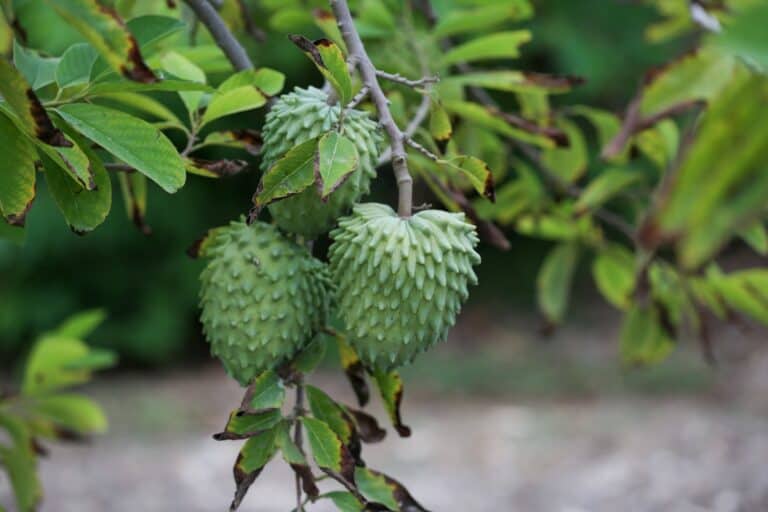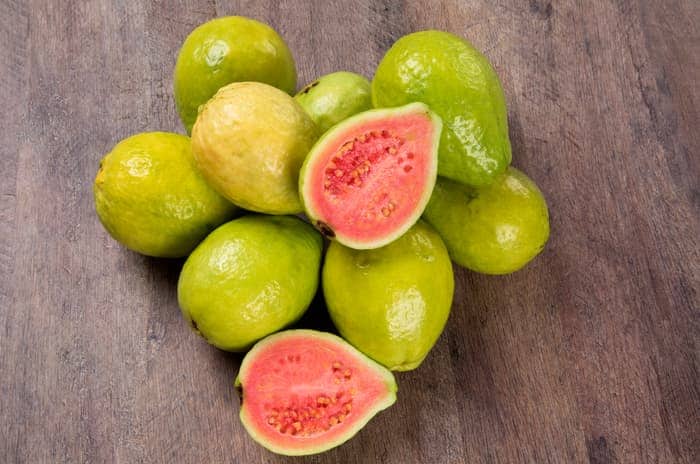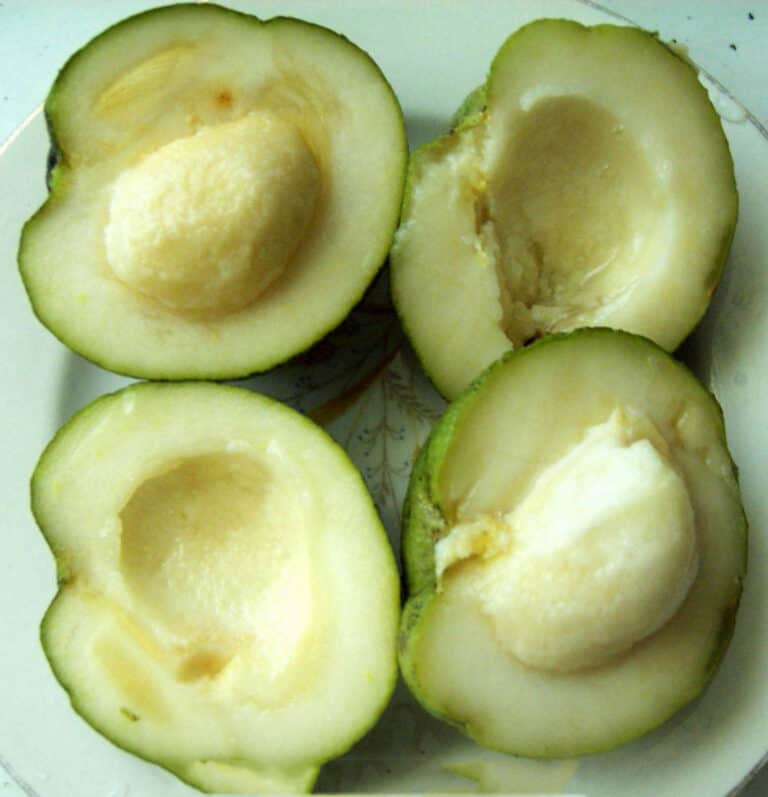Delicious Benefits of Chikoo Fruit to Your Diet
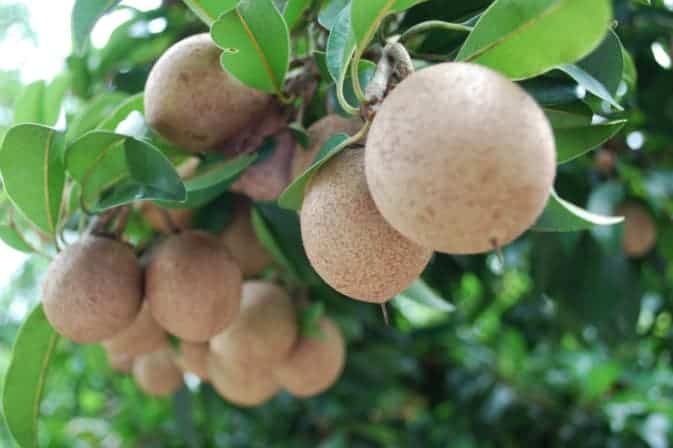
Are you wanting to add some scrumptious and healthy fruit to your diet? Look no further than the benefits of chikoo fruit! Also known as sapodilla, this sweet and flavorful fruit is not only a tasty treat but also packed with nutrients that can benefit your health in various ways. In this article, we’ll explore the many sapodilla benefits and side effects and why you should consider adding it to your diet.
Benefits of chikoo fruit
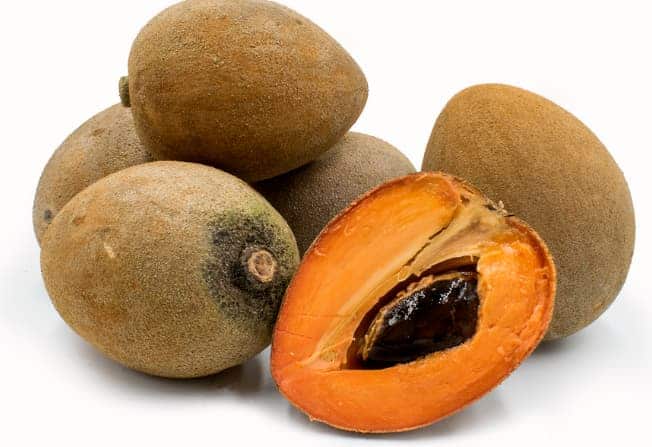
Benefits of chikoo fruit is a tropical fruit that is native to Central America and Mexico but is now grown in many parts of the world, including Asia, Africa, and the Caribbean. It has a brown, fuzzy exterior and a sweet, juicy interior with black seeds. Chikoo fruit can be eaten on its own as a snack or used in a variety of dishes, including desserts, smoothies, and salads.
Rich in Nutrients
Chikoo fruit is not only delicious but also packed with nutrients that can benefit your health. One chikoo fruit contains:
- 220 calories
5 grams of fiber
2 grams of protein
58% of the recommended daily intake of vitamin C
15% of the recommended daily intake of vitamin A
8% of the recommended daily intake of potassium
In addition to these nutrients, chikoo fruit also contains antioxidants and other beneficial compounds that can help protect against disease and promote overall health.
Health Benefits of Chikoo Fruit
Here are some of the ways that adding benefits of chikoo fruit to your diet can benefit your health:
Supports Digestive Health
Chikoo fruit is rich in fiber, which is important for digestive health. Fiber aids in regulating bowel motions, preventing constipation, and encouraging the development of beneficial gut flora. Additionally, chikoo fruit contains tannins, which can help soothe and heal digestive issues like diarrhea and inflammation.
Boosts Immune System
Chikoo fruit is loaded with vitamin C, a powerful antioxidant that can help boost the immune system and protect against illness and disease. Vitamin C is also important for producing collagen, a protein essential for skin health and wound healing.
Supports Bone Health
Chikoo fruit contains calcium, a mineral that is essential for strong bones and teeth. Additionally, it contains phosphorus, which works with calcium to promote bone health and prevent osteoporosis.
Helps Control Blood Sugar
The benefits chikoo fruit has a low glycemic index, which means that it won’t cause a spike in blood sugar levels like some other sweet foods. This makes it a good choice for people with diabetes or anyone looking to maintain healthy blood sugar levels.
Promotes Heart Health
Chikoo fruit contains potassium, a mineral that is important for heart health. Potassium can help regulate blood pressure, reduce the risk of heart disease, and improve overall cardiovascular health.
Maintaining a healthy weight is essential for overall well-being, and there are various approaches to achieving it.
One such approach is incorporating certain foods into your diet that can aid in weight loss.
Chikoo Fruit and Weight Loss
Chikoo fruit, also known as sapodilla, is a tropical fruit with a sweet, caramel-like taste that has gained popularity in recent times as a potential aid in weight loss. In this article, we will explore the benefits and disadvantages of chikoo of including chikoo fruit in your diet as a weight-loss aid.
There is limited scientific research on the direct link between chikoo fruit and weight loss. However, some evidence suggests that consuming chikoo fruit may aid in weight loss indirectly. Here are some ways chikoo fruit may help with weight loss:
High in Fiber
The benefits of chikoo fruit are high in fiber, which can help you feel full for longer, leading to a reduced appetite and potentially aiding in weight loss. Fiber also helps regulate bowel movements and improve digestive health.
Low in Calories
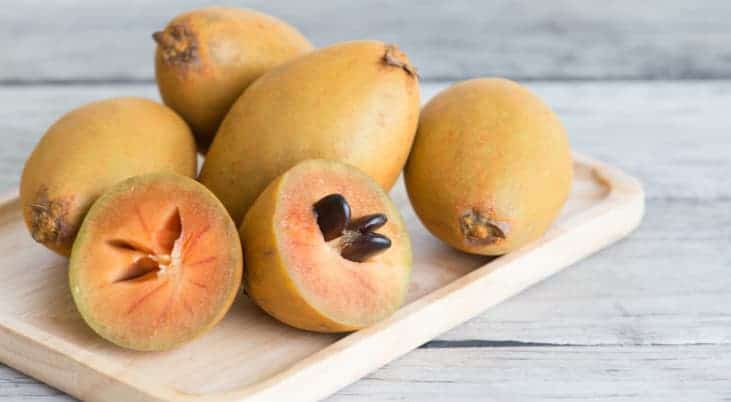
Chikoo fruit is relatively low in calories, with one fruit containing approximately 83 calories. Consuming chikoo fruit as a snack or incorporating it into meals can help you consume fewer calories while still feeling satiated.
Natural Sweetness
Chikoo fruit has a natural sweetness that can help curb cravings for sugary treats, which are high in calories and can lead to weight gain. Consuming chikoo fruit as a substitute for high-calorie desserts may help you reduce overall calorie intake.
Potential Drawbacks of Consuming Chikoo Fruit
While chikoo fruit can be a nutritious addition to a balanced how many chikoo in a day, there are some potential drawbacks to consuming it as a weight-loss aid.
High in Sugar
The benefits of chikoo fruit are relatively high in natural sugars, with one fruit containing approximately 19 grams of sugar. Consuming too much sugar can lead to weight gain, and individuals with diabetes or other medical conditions that require monitoring sugar intake should consume chikoo fruit in moderation.
High in Carbohydrates
Chikoo fruit is also relatively high in carbohydrates, with one fruit containing approximately 22 grams of carbohydrates. Consuming too many carbohydrates can lead to weight gain, and individuals following low-carb diets may need to limit their chikoo fruit intake.
How to Incorporate Chikoo Fruit into Your Diet
If you are interested in incorporating chikoo fruit into your diet as a weight-loss aid, there are several ways to do so:
As a Snack
Chikoo fruit can be consumed as a healthy snack on its own, sliced or diced.
In Smoothies
Chikoo fruit can be added to smoothies for a natural sweetener and a boost of nutrients.
In Salads
Chikoo fruit can be sliced and added to salads for a sweet and crunchy element.
How to Incorporate Chikoo Fruit Into Your Diet
Chikoo fruit can be enjoyed in a variety of ways. Here are some ideas:
- Consume it as a snack all by itself.
Add it to smoothies or yogurt bowls
Use it in desserts like cakes, pies, and puddings
Add it to salads for a sweet and juicy burst of flavor
Make chikoo milkshake for a delicious and nutritious treat
Conclusion
Chikoo fruit is a delicious and nutritious addition to your diet. It is packed with fiber, vitamins, and minerals that can chikoo benefits to skin and your health in a variety of ways.
FAQs
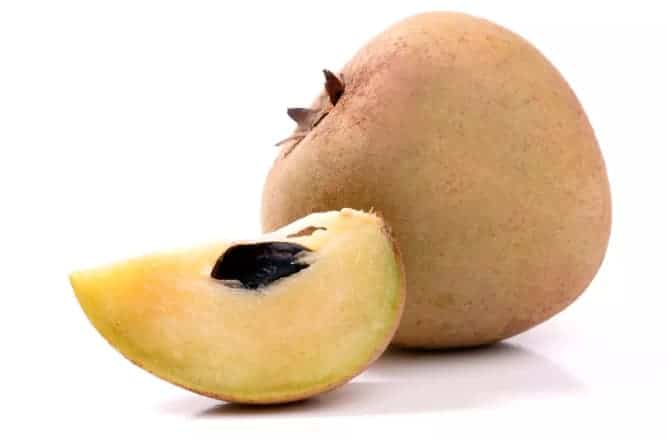
Here are some FAQs:
Is chikoo fruit high in sugar?
While the benefits of chikoo fruit are naturally sweet, it has a low glycemic index and won’t cause a spike in blood sugar levels.
Can chikoo fruit help with weight loss?
Benefits of chikoo fruit are low in calories and high in fiber, making it a good choice for weight loss.
Can chikoo fruit cause allergies?
Some people may be allergic to chikoo fruit, so it’s important to watch for any symptoms of an allergic reaction, such as itching, hives, or difficulty breathing.
How can I tell if a chikoo fruit is ripe?
A ripe chikoo fruit should be soft to the touch and have a sweet aroma.
Are there any precautions I should take when eating chikoo fruit?
Benefits of chikoo fruit contain latex, which can cause an allergic reaction in some people. Additionally, the seeds should not be eaten as they may be toxic.
Read more: Benefits of eating guava fruit

